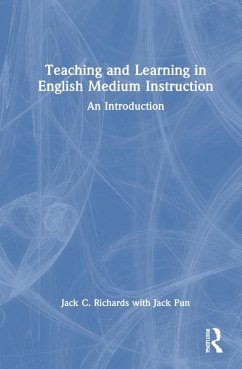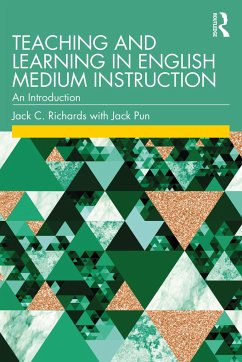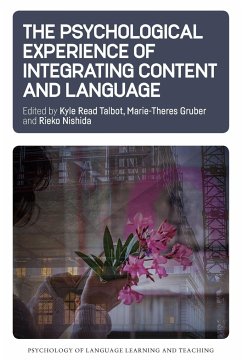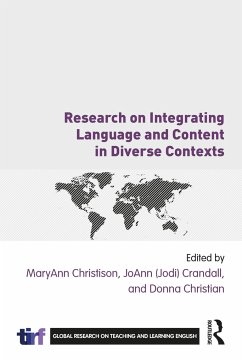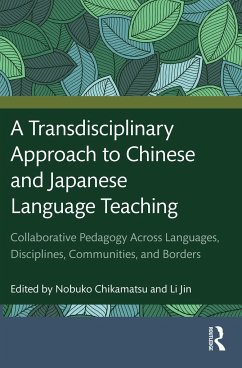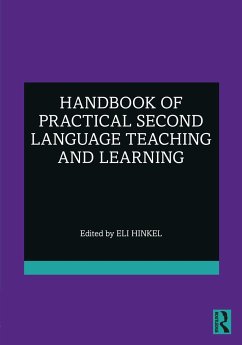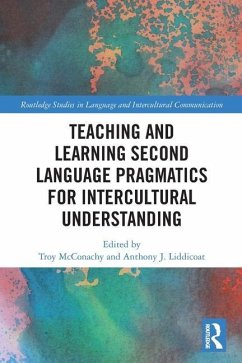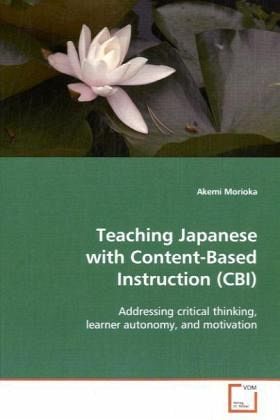
Teaching Japanese with Content-Based Instruction (CBI)
Addressing critical thinking, learner autonomy, and motivation
Versandkostenfrei!
Versandfertig in 6-10 Tagen
37,99 €
inkl. MwSt.

PAYBACK Punkte
19 °P sammeln!
Content-Based Instruction (CBI) is considered to beone of the most prominent teaching approaches in thefield of foreign language education. The proponentsof CBI claim that CBI integrates the learning ofcontent and language, allowing students to use thelanguage as a vehicle for acquiring the content ofthe lecture. It is also argued that CBI fostersstudents critical thinking and autonomous learningskills, while developing their motivation. Despitethese claims that appear in a number of articles andbooks, very few reports are supported by substantialqualitative or quantitative data. Furthermore,e...
Content-Based Instruction (CBI) is considered to be
one of the most prominent teaching approaches in the
field of foreign language education. The proponents
of CBI claim that CBI integrates the learning of
content and language, allowing students to use the
language as a vehicle for acquiring the content of
the lecture. It is also argued that CBI fosters
students critical thinking and autonomous learning
skills, while developing their motivation. Despite
these claims that appear in a number of articles and
books, very few reports are supported by substantial
qualitative or quantitative data. Furthermore,
empirical study of CBI in Fundamental or Intermediate
level Asian language courses is lacking. The current
study explored foreign language instruction with
regard to the aforementioned claims about CBI. The
research questions were whether CBI fosters students
critical thinking skills, autonomous learning skills,
and learning motivation more than a hybrid-CBI or
traditional teaching approach. Qualitative data were
collected through surveys, and a written and oral
assessment. Quantitative data were collected through
interviews and class observations.
one of the most prominent teaching approaches in the
field of foreign language education. The proponents
of CBI claim that CBI integrates the learning of
content and language, allowing students to use the
language as a vehicle for acquiring the content of
the lecture. It is also argued that CBI fosters
students critical thinking and autonomous learning
skills, while developing their motivation. Despite
these claims that appear in a number of articles and
books, very few reports are supported by substantial
qualitative or quantitative data. Furthermore,
empirical study of CBI in Fundamental or Intermediate
level Asian language courses is lacking. The current
study explored foreign language instruction with
regard to the aforementioned claims about CBI. The
research questions were whether CBI fosters students
critical thinking skills, autonomous learning skills,
and learning motivation more than a hybrid-CBI or
traditional teaching approach. Qualitative data were
collected through surveys, and a written and oral
assessment. Quantitative data were collected through
interviews and class observations.



